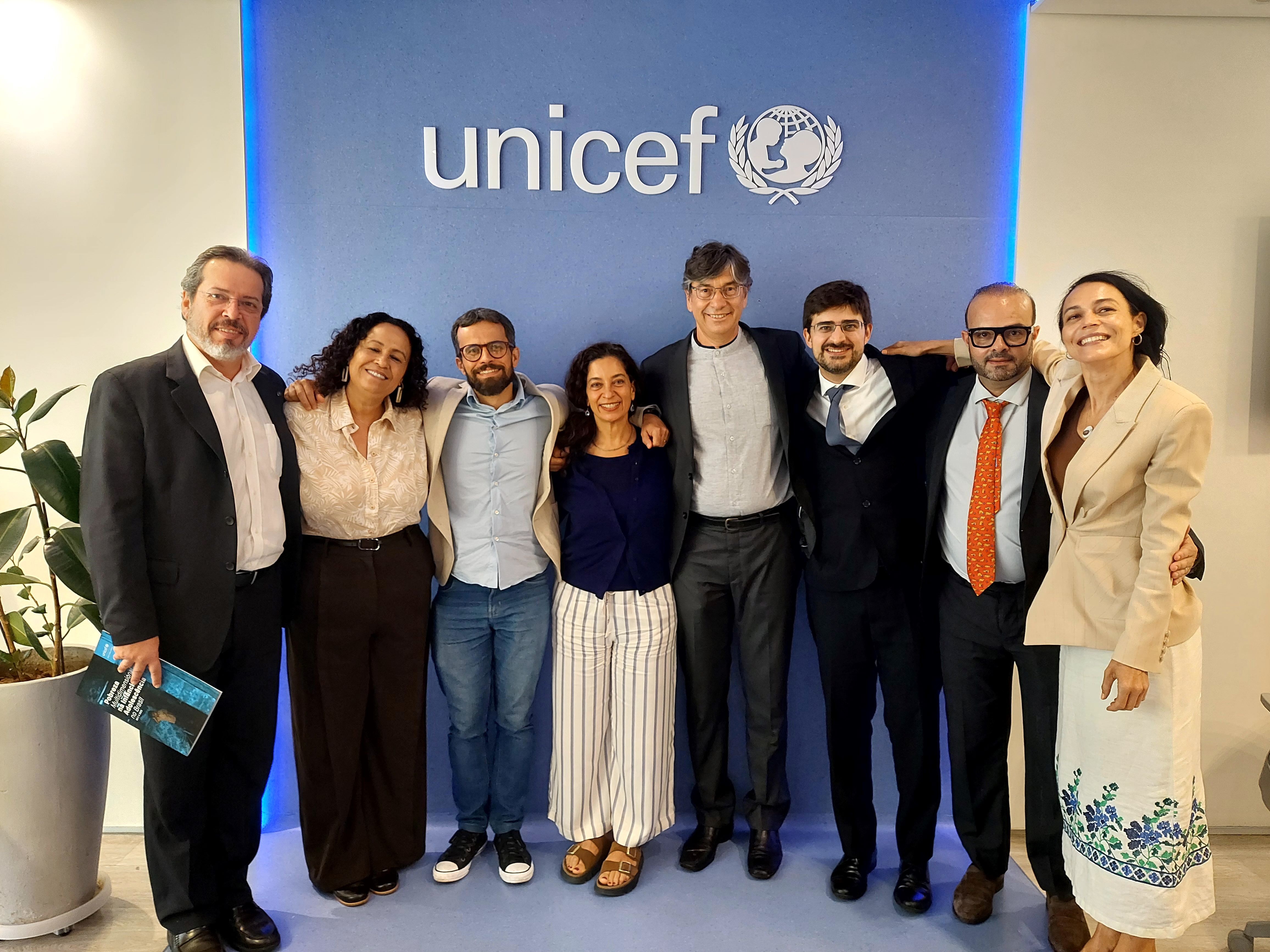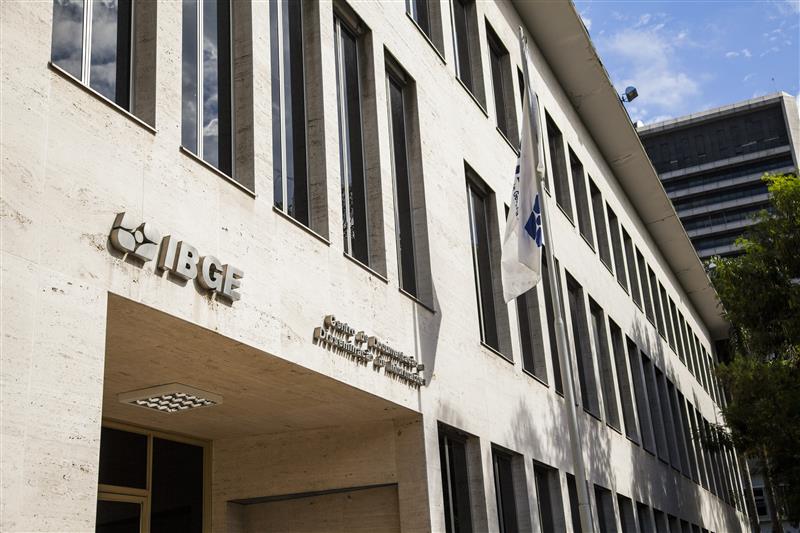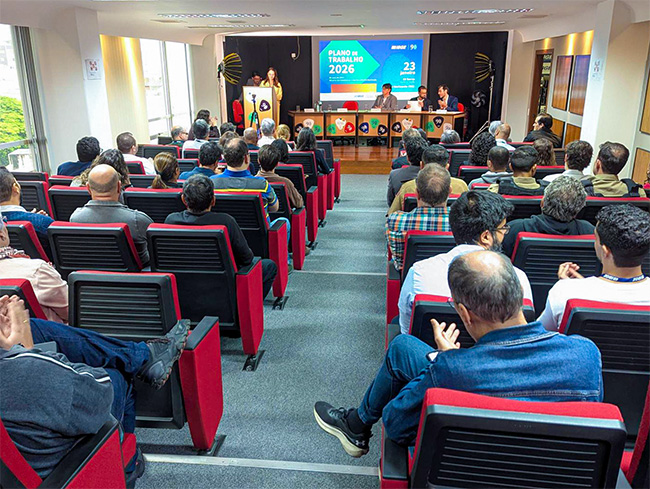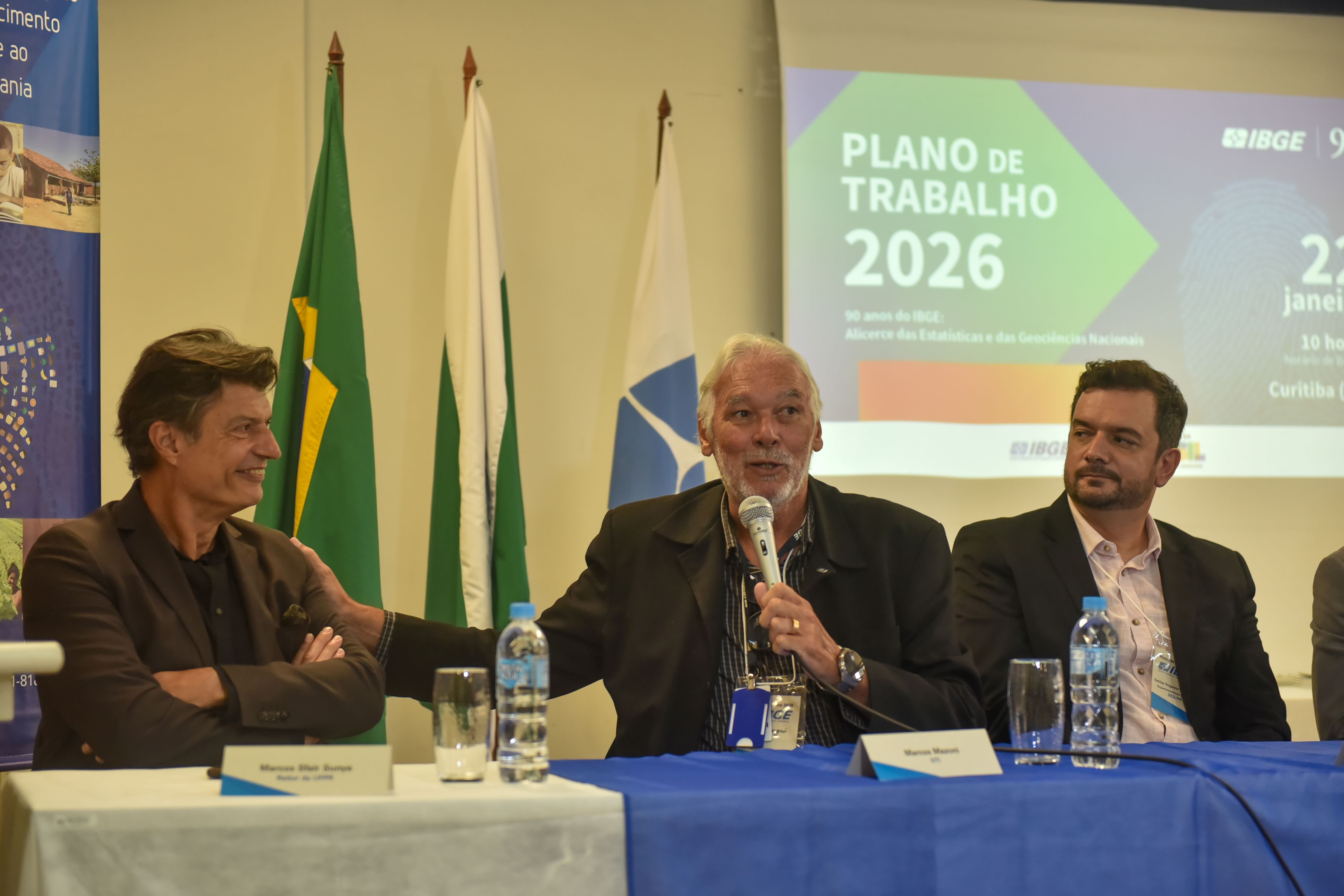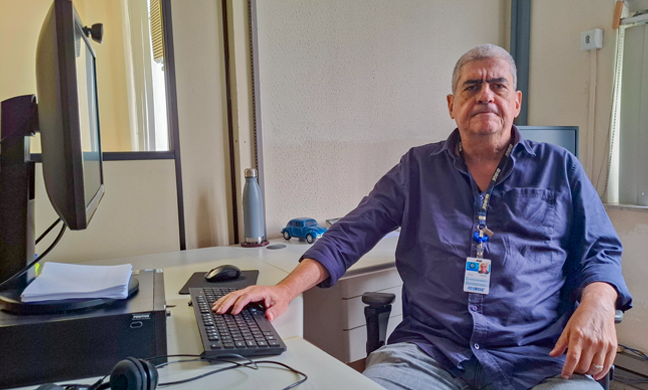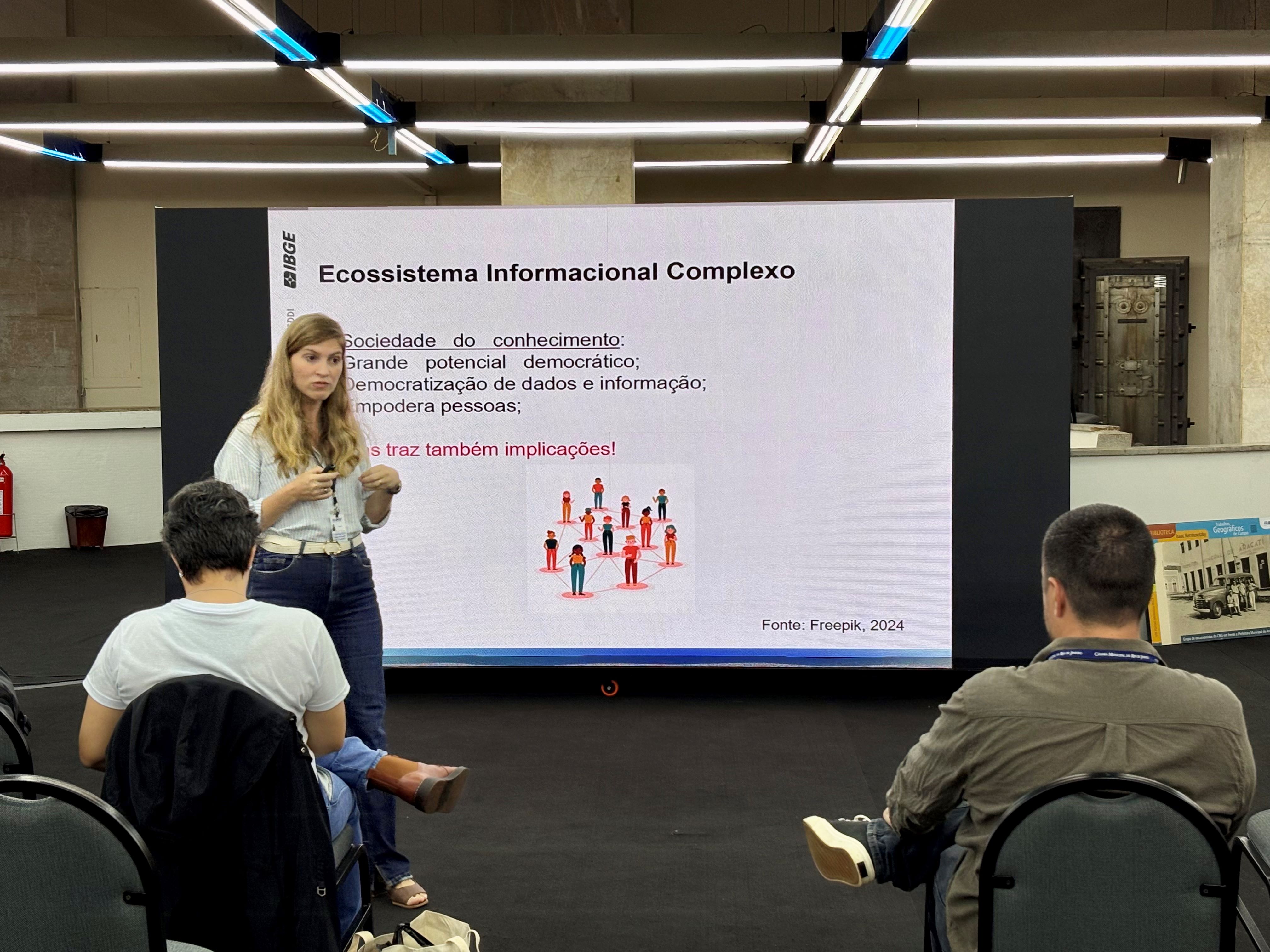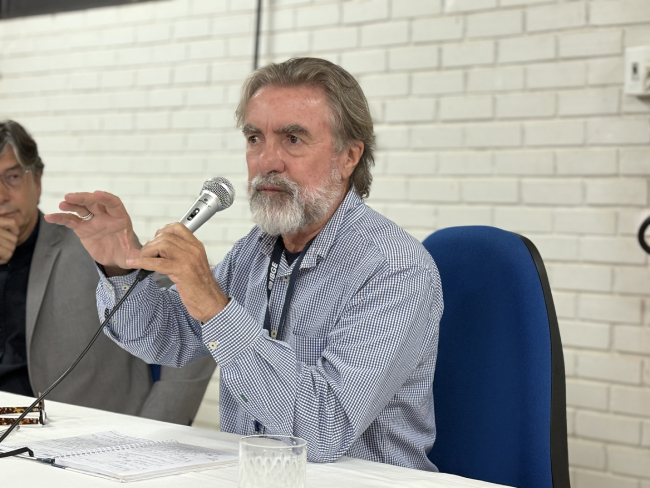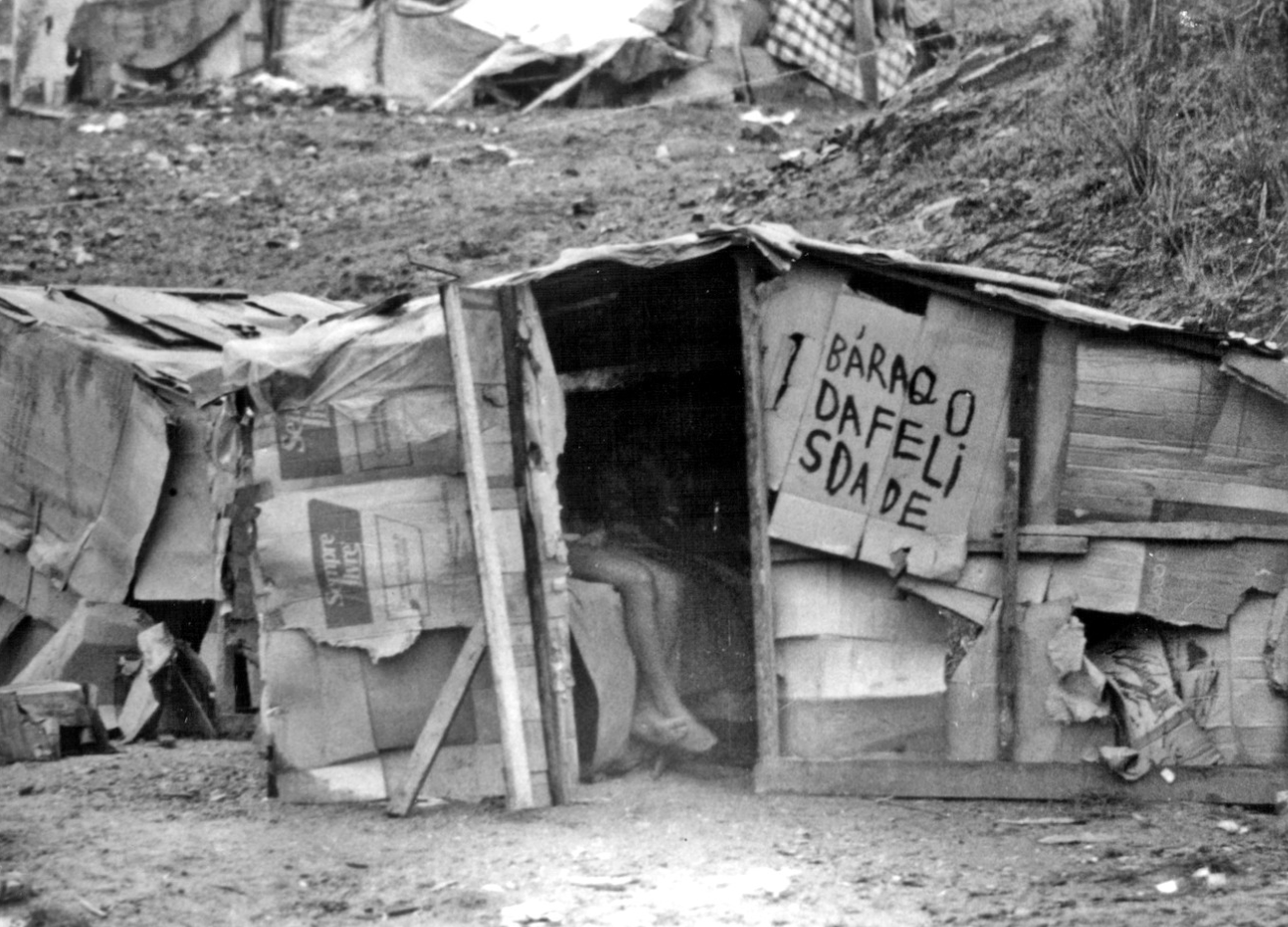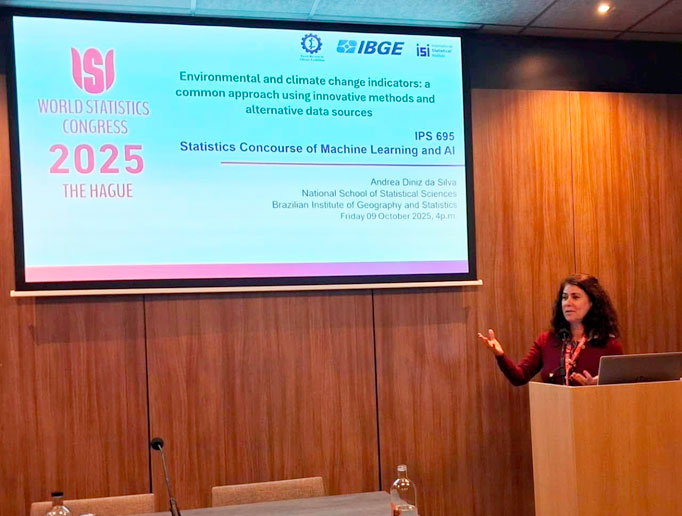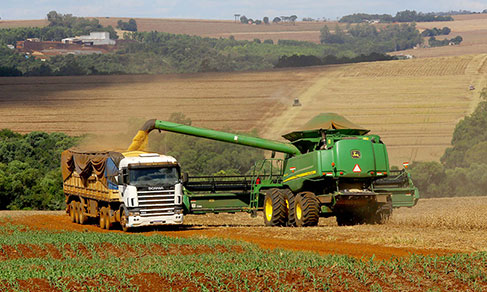Geosciences
IBGE releases second edition of the 68th volume of the Brazilian Journal of Geography
April 25, 2024 10h00 AM | Last Updated: April 29, 2024 04h15 PM
Highlights
- The second number of the 68th volume of the Brazilian Journal of Geography (Revista Brasileira de Geografia - RBG) brings three articles and two interviews.
- It also highlights the recent publication by the IBGE Department of Geography: Methodological Note No. 1 From Subnormal Agglomerates to Favelas and Poor Urban Communities: The construction of a new IBGE approach to popular territories.
- The main highlight of this edition is the article that brings a theoretical discussion on the territorial issue of traditional cultures present in Brazilian society.
- The second edition can be accessed through the link available here.
- The first edition of volume 68 of the Brazilian Journal of Geography was published in September 2023.

The IBGE has released today (April 25) the second edition of volume 68 of the Brazilian Journal of Geography (Revista Brasileira de Geografia - RBG). This new edition brings three articles addressing Indigenous territoriality and interethnic contacts; the issue of the use of satellite images to detect areas prone to Aedes aegypti mosquitoes; and the impact of the COVID-19 pandemic in the municipalities of Minas Gerais according to their social vulnerability index. In addition, this issue features two interviews with cartographers and geographers, as well as a Methodological Note of the Department of Geography of the IBGE Directorate of Geosciences.
“The journal’s focus is on showing how different fields of knowledge have resorted to spatial analysis, especially due to the technological advancements of tools such as satellite images and mapping software. In the previous issue, the spatial analysis was on the agrarian issue, in one article that compared the impacts of some settlements from the socioenvironmental point of view. This second edition of 2023 has a very important theoretical discussion on the territorial dimension of the traditional cultures present in the Brazilian society”, says the journal’s executive director, Maria Lúcia Vilarinhos.
On the theme “Indigenous territoriality and interethnic contacts”, the first article of this edition brings a perspective from geography and social anthropology using the notions of territorialization and social status and proposes the concept of territorial status. The article is written by Fernando Souza Damasco, Master and doctoral student of Geography from the Fluminense Federal University (UFF). Mr. Damasco heads the Traditional Territories and Protected Areas Division and is one of the technicians responsible for the project on Traditional Peoples and Communities (PCTs).
The objective of the article is to understand the importance of these processes to help design public policies to reach the Indigenous peoples in their different territorial situations, and to draw attention to the misunderstandings and prejudice that affect the negotiation with these segments of the Brazilian society. To Maria Lúcia Vilarinhos, “the key point to this article is a reflection upon the impact of the territorial issue on the lives of the people in these groups”.
The second article, in turn, deals with the use of satellite images to detect potential breeding sites of Aedes aegypti mosquitoes in urban areas. Written by Israel Henrique Ribeiro Rios, graduated in Sanitary and Environmental Engineering from the Federal University of Bahia (UFBA), Master in Water Resources Management and Regulation (UFBA), and doctoral student in Global Health and Sustainability from the University of São Paulo (USP), the article covers, as the survey area, a residential neighborhood in Campinas (SP). The study shows the importance of the extending the use of images to the most different aspects of life routine, with emphasis on its possibilities in the field of public health. The article features the cover of the RBG.

The third article is written by Júlia Marchesin Caetano, graduated in Architecture and Urbanism from the University of São Paulo (USP), and Master in Population, Territory and Public Statistics from the National School of Statistical Sciences (ENCE/IBGE) and Thaís Cristina Oliveira da Fonseca , graduate and master in Statistics from the Federal University of Rio de Janeiro (UFRJ), and PhD in Statistics from the University of Warwick, UK (United Kingdom). The article uses statistical and spatial analysis tools to create an indicator of social vulnerability, showing the places most susceptible to the harmful effects of the COVID-19 pandemic in the state of Minas Gerais.
The second issue of the 68th volume of the RBG also features an interview with geographer Maria Monica Vieira Caetano O'Neill, graduate, Master and PhD in Geography from the Federal University of Rio de Janeiro (UFRJ), and responsible for important projects developed in the IBGE Department of Geography, covering themes on regionalization and urbanization. Ms. O'Neil has a career spanning over 40 years at the IBGE and is recognized within the Institute and in the academic field.
There is also an interview with Leonardo Scharth, a cartographer graduated from the State University of Rio de Janeiro (UERJ), with a Master's degree in Cartographic/Geomatic Engineering, a PhD in Geodetic Sciences from the Federal University of Paraná (UFPR), and elected vice-president of “Regional Americas of Global Geospatial Information Management” of the UN – GGIM, and with Claudio Stenner, graduate in Geography from the Federal University of Juiz de Fora, Master in Geography from the UFRJ and president of the Expert Group on the Integration of Statistical and Geospatial Information at GGIM . The interview addresses the importance of these UN bodies, their responsibilities and IBGE's participation in these forums.
The last session of the Journal discloses all the geoscience products that were launched in the period between one edition and the next. Among them, the Department of Geography of the IBGE Geosciences Directorate releases the Methodological Note From Subnormal Agglomerates to Favelas and Poor Urban Communities: “The construction of a new IBGE approach to popular territories”. The Note was published in January 2024 and provides a summary of the Seminar promoted by the IBGE Department of Geography , in September 2023, in partnership with other institutions, researchers, ministries, communities, observatories and representative entities.
About the Brazilian Journal of Geography
Edited by IBGE, the Brazilian Journal of Geography (RBG) is one of the oldest and most respected Brazilian technical-scientific publications in the area of Geography and related sciences. With a few interruptions, the RBG was published quarterly for almost 70 years, between 1939 and 2006, being considered a reference. Many of its articles expanded important frontiers of knowledge, becoming classics, both in the country and abroad. In 2016, the Institute once again published the magazine in a new format — as a biannual electronic edition.



